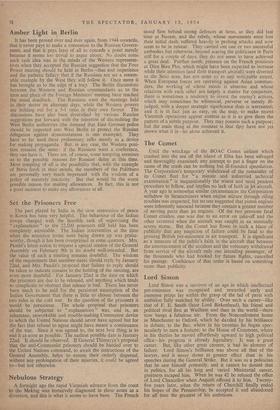Lord Simon
Lord Simon was a survivor of an age in which intellectual pre-eminence was recognised and rewarded early and immense prizes lay within the grasp of the lad of parts with ambition fully matched by ability. Over such a career—like that of F. E. Smith (later Lord Birkenhead), his friend and political rival first at Wadham and then in the world—there now hangs a fabulous air. From the. Nonconformist home in Manchester to Oxford, which he dazzled by his brilliance in debate; to the Bar, where in his twenties he began spec- tacularly to earn a fortune; to the House of Commons, where in his thirties he moved effortlessly upward to high political office—his progress is already legendary. It was a great career. But, like other great careers, it had its element of failure. Lord Simon's brilliance was above all that of the lawyer, and it never shone to greater effect than in his speeches during the General Strike. But it was as a politician that he saw himself primarily, and it cannot be denied that in politics, for all his long and varied Ministerial career, greatness escaped him. When he was 42 he refused the office of Lord Chancellor when Asquith offered it to him. Twenty- five years later, when the return of Churchill finally ended his hopes of the Premiership, he accepted it and abandoned for all time the greatest of his ambitions.


































 Previous page
Previous page